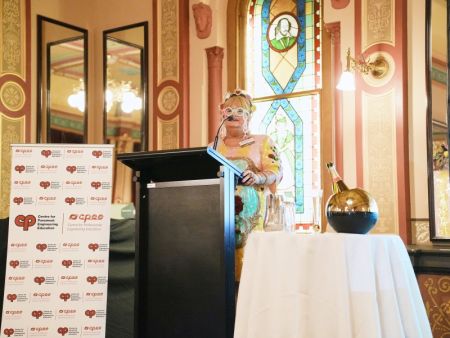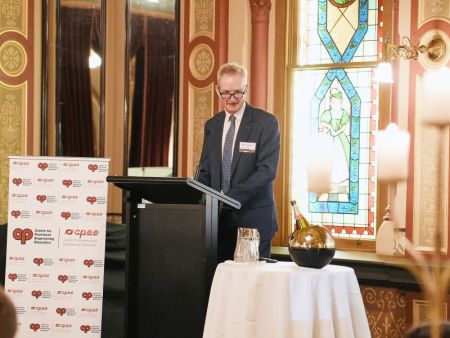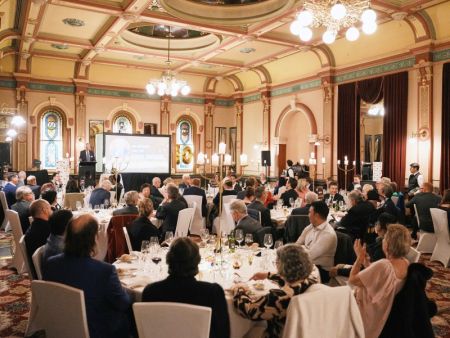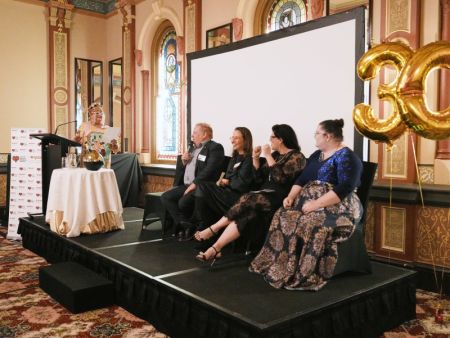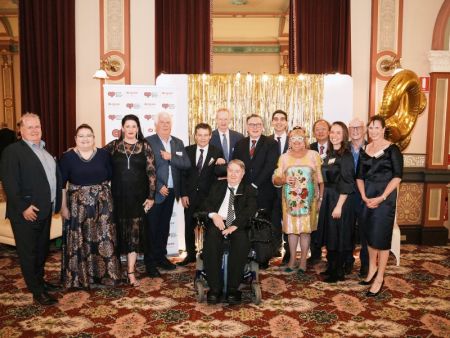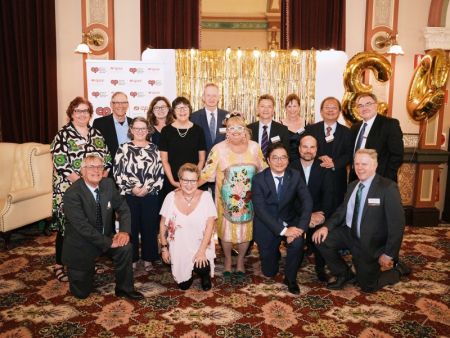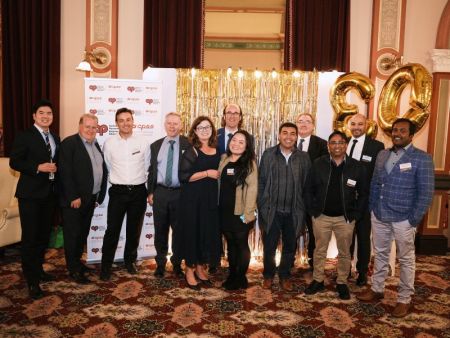CPEE Celebrates 30 Years of Impact in Infrastructure Education
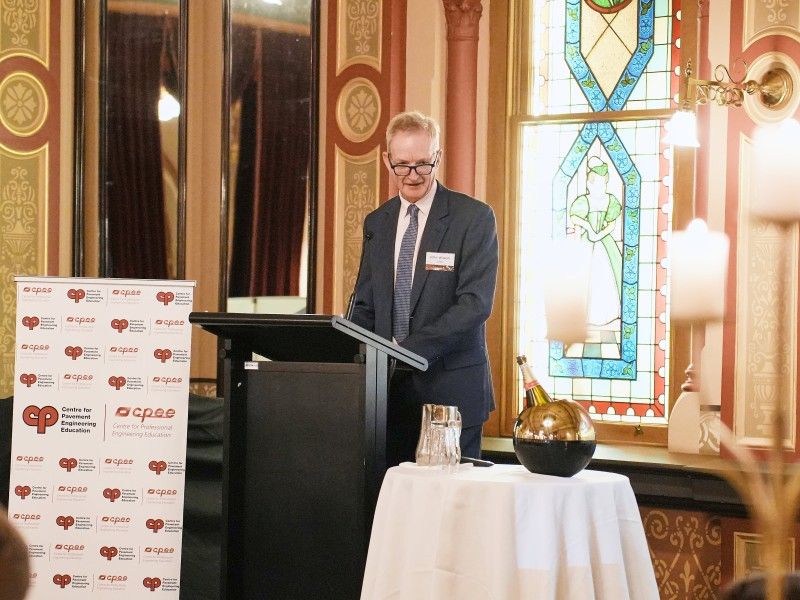
On 21 May 2025, the Centre for Pavement Engineering Education (CPEE) celebrated a landmark 30 years of innovation, education, and collaboration at a gala dinner held at Melbourne’s historic Hotel Windsor.
Blog Articles
- Workplace Mentors Semester 1, 2025
- CPEE presenting at CDIO conference
- DTP Staff Reflections on CPEE Unit 600
- CPEE Attends CCF Victoria’s Infrastructure Breakfast: Celebrating Industry Insights and Partnerships
- Welcoming Strong Leadership at AfPA: Tony Aloisio Appointed CEO, Graham Henderson Expands Executive Role
- Keynote for Women in Transport mentoring launch
- Deputy Secretary presented at CPEE Stabilisation Course with AustStab
- A Heartfelt Thank You to our Generous Scholarship Sponsors
- International Women In Engineering Day Mackay & Melbourne
- CPEE Celebrates 30 Years of Impact in Infrastructure Education
The event brought together guests from across government, industry, and academia, with keynote addresses and panel conversations led by national leaders including Louise McCormick, Kevin Devlin, Lisa Kinross, and Lauren Streifer. The evening was hosted by CPEE CEO Madeleine McManus OAM, who guided the event with warmth, energy, and a deep commitment to the Centre’s legacy and future.
In his opening speech, CPEE Chair Emeritus Professor John Wilson reflected on the roots of the organisation:
“CPEE was born not as a traditional academic institution, but as a purpose-driven collaboration between industry, academia, and government... built on the idea that the community needed the skills to design, construct, rehabilitate and maintain an optimum performing roads network.”
Professor Wilson also honoured founding pioneers such as Ray Farrelly, Ken Mavin, Kerry McManus, and Peter Lowe — individuals who saw the pressing need for formalised education in flexible pavements when none existed, and set in motion a model for industry-aligned learning that remains unique in Australia and New Zealand today.
“CPEE was born not as a traditional academic institution, but as a purpose-driven collaboration between industry, academia, and government... built on the idea that the community needed the skills to design, construct, rehabilitate and maintain an optimum performing roads network.”
From Ray Farrelly’s historical reflections:
“The concept for what was initially APSARC came about when we saw a gap in university curriculum for flexible pavement design. To address this imbalance, we created a specialised postgraduate education platform — one that would go on to educate thousands across Australia and the world.”
The evening recognised scholarship sponsors — including Austroads, AfPA, QTMR, Roads Australia, and others — as well as program partners and proud alumni. As well as Program partners: Arcadis, AustStab, CCF Victoria, Engineers Australia, IPWEA, PTAANZ, PIARC, ASCP & many more
Attendees spanned three generations of pavement engineers, highlighting CPEE’s enduring legacy.
“The concept for what was initially APSARC came about when we saw a gap in university curriculum for flexible pavement design. To address this imbalance, we created a specialised postgraduate education platform — one that would go on to educate thousands across Australia and the world.”
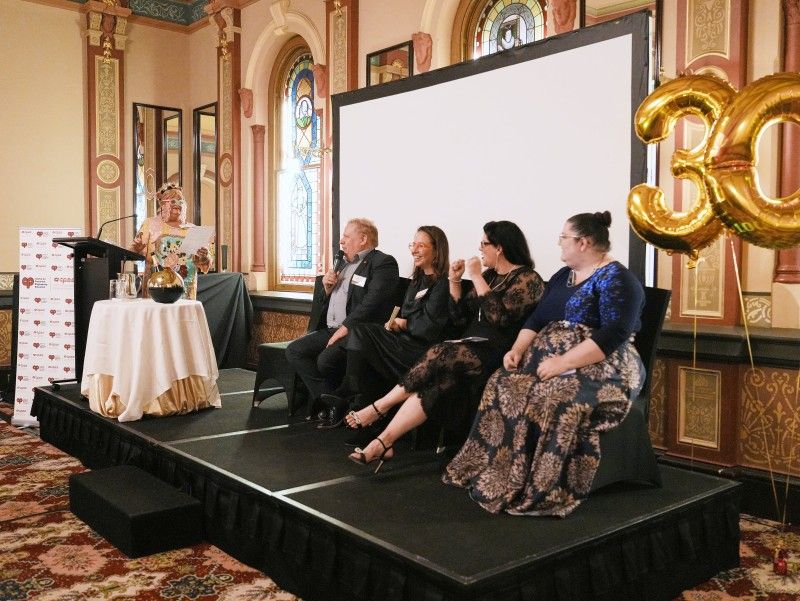
As Professor Wilson noted:
“The future of infrastructure demands climate resilience, digital transformation, and diverse talent. CPEE stands ready to support the next generation of professionals who will lead us into that future.”
CPEE thanks all guests, sponsors, students and alumni for their continued support — and looks forward to shaping the next era of excellence in pavement and infrastructure education.
